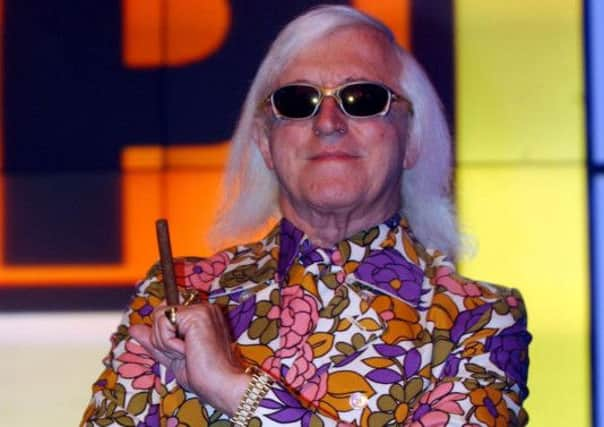Savile victims await verdict on court battle over £4.3m estate


A charity and a bank’s fight over who should be the executor of Leeds-born Savile’s £4.3m estate is being dealt with at a High Court hearing in London that is expected to end later this week.
Lawyers representing some of his victims say they have agreed a compensation scheme with NatWest bank, the estate’s current executor.
Advertisement
Hide AdAdvertisement
Hide AdBut the Jimmy Savile Charitable Trust – the main beneficiary of the estate under the terms of the serial sex attacker’s will – is unhappy with the bank’s performance and wants it to be replaced by another executor.
Victims’ lawyers say that, if Mr Justice Sales rules in favour of the trust, then the agreed compensation scheme could be undermined and claimants might be forced into litigation.
Liz Dux, from law firm Slater & Gordon, which is representing more than 140 Savile victims, described yesterday’s hearing as “important”.
She said: “The money is available and it should be paid out as soon as possible to deliver some closure.” Ms Dux added: “It is not about amounts or cold hard cash but redress.”
Advertisement
Hide AdAdvertisement
Hide AdYesterday also saw the publication of a report by the NSPCC following an inquiry into why so many of Savile’s victims stayed silent for so long.
According to the report, Would They Actually Have Believed Me?, some of the victims told hospital staff what had happened only to have their claims dismissed.
One of the 26 victims interviewed by NSPCC counsellors went to the police but no action was taken. The vast majority were children when they were abused.
The NSPCC said the research, which was commissioned by Her Majesty’s Inspectorate of Constabulary, highlighted the “devastating scars” that victims had suffered from the abuse, with some turning to drink and drugs to cope. Others have suffered mental illness or contemplated suicide, it said.
Advertisement
Hide AdAdvertisement
Hide AdPeter Watt, the NSPCC’s director of national services, said: “The responses these victims received when they first revealed Savile’s sickening crimes makes heart-rending reading.
“They were ignored, dismissed, not believed, laughed at and, astonishingly, told in some cases they should feel lucky he had paid them attention. Half a century on, the world finally discovered just how dreadful his crimes were – something these men and women had known all that time but felt powerless to do anything about.
“The anger, frustration and sheer helplessness of the situation obviously damaged their lives in various ways. But they showed true courage in coming forward once more to talk about their experiences and hopefully they can now start to put the terrible trauma behind them.”
A key reason for not reporting the abuse was an “overwhelming belief” from victims that they would not have been believed at the time, the NSPCC said. “Jimmy Savile was a powerful and influential adult, who was seen as a ‘charitable, good guy’ raising a lot of money for charity,” the report said.
Advertisement
Hide AdAdvertisement
Hide Ad“This led to feelings of hopelessness and inferiority in his victims, who felt there was no way that their word would have been believed over his.”
According to the report, victims had “largely positive experiences” when they finally went to the police after Savile’s crimes were exposed in 2012. But they wanted to see improvements, including new ways to report sexual abuse and additional specialist training for officers receiving and investigating allegations, the NSPCC said.
Crime Prevention Minister Norman Baker said: “It is encouraging to hear that these victims felt the response from police was largely supportive. While we can never right the horrific wrongs committed against these people, we must ensure we do all we can to protect the most vulnerable in our society from becoming victims again in the future.”